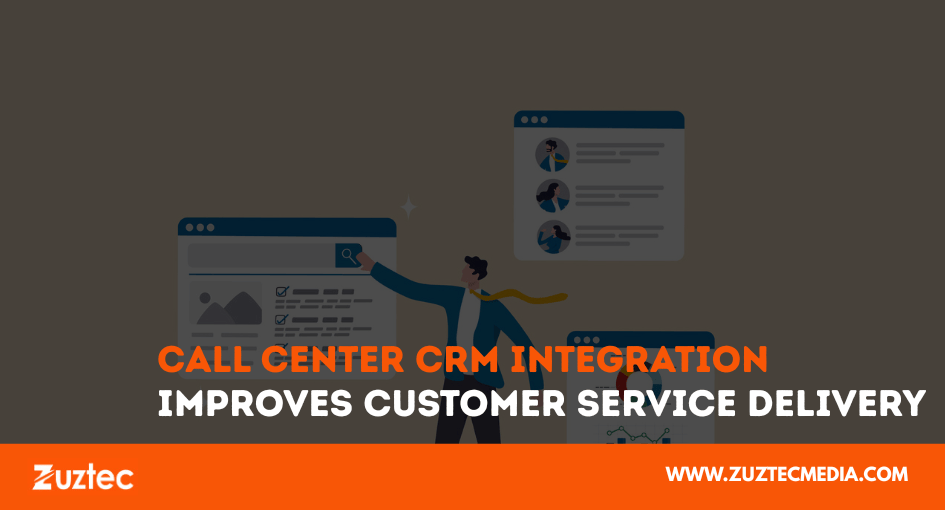
Call Center CRM Integration Improves Customer Service Delivery
Call centers are under increasing pressure to provide seamless, personalized, and efficient customer service across multiple channels. One of the most impactful ways to meet these expectations is by integrating customer relationship management (CRM) systems directly with call center operations. Call center CRM integration enables agents to access customer data in real time, respond more effectively to inquiries, and build better relationships—all within a single platform.
Customers today expect companies to remember past interactions, offer quick resolutions, and provide consistent experiences. With CRM tools integrated into call center systems, agents are no longer working in silos. Instead, they get a full picture of the customer journey, including purchase history, service issues, and previous communication. This context allows for faster responses, fewer repeated questions, and a smoother overall service experience.
The benefits aren’t limited to just better customer interactions. Managers also gain visibility into team performance and customer satisfaction metrics. They can track how long issues take to resolve, how often customers need to call back, and which agents perform best. With this data, continuous improvement becomes possible through training, automation, and process changes.
This article will explore how CRM integration works, why it matters, and how to implement it successfully in a modern call center. Whether you’re aiming to boost efficiency or deliver a more personalized customer journey, the right integration strategy is a powerful step toward transformation.
What Is Call Center CRM Integration?
It connects customer service software with CRM systems so that all customer data is centralized and accessible during each interaction. This allows agents to quickly view a customer’s information, past activity, and any open issues before starting a conversation. It eliminates the need to switch between systems and enables faster, more informed responses.
When properly integrated, a CRM system automatically logs call outcomes, tracks customer feedback, and updates contact records. Agents spend less time on administrative tasks and more time solving problems. This also reduces human error, as automation ensures consistency in how data is recorded and managed.
Most modern integrations include features such as screen pops, which show the customer’s profile as soon as a call connects, and automatic call logging, which saves interaction details without requiring manual entry. These capabilities streamline workflows and free up agents to focus on relationship building rather than data entry.
CRM integration isn’t just for large call centers. Even small teams benefit from having unified data and simplified tools. When agents can see the full context of a customer’s journey, they provide more relevant support, which ultimately improves satisfaction and loyalty.
Key Advantages Of CRM Integration In Call Centers
One of the most important benefits of call center CRM integration is faster resolution times. With access to a customer’s full history and preferences, agents can resolve issues more quickly and accurately. They don’t need to ask for repeat information or dig through separate systems to understand a case.
It also enhances personalization. For instance, if a customer recently made a purchase or submitted a support ticket, the agent can reference that specific activity and tailor their conversation. Personalized interactions increase customer satisfaction and reduce frustration.
In addition, CRM integration enables real-time performance tracking. Managers can monitor agent productivity, call duration, and resolution rates—all of which help identify training needs and process improvements.
In the midbody of service operations, integrated platforms allow different departments to collaborate. Sales, support, and marketing teams can share customer insights, leading to more cohesive strategies and improved customer outcomes.
CRM integration also helps with compliance by ensuring that all customer data is stored and updated consistently across platforms. This is especially important for industries that deal with sensitive information or regulatory requirements.
How To Implement CRM Integration Effectively
To successfully implement call center integration, start by assessing your current systems and workflows. Identify where inefficiencies exist, such as duplicated data entry, lack of visibility, or long response times. These pain points help shape the integration strategy.
Next, choose CRM and call center platforms that are compatible and offer robust integration features. Many leading software providers offer APIs or pre-built connectors that make integration easier. Ensure that the system supports key features like screen pops, call logging, and data syncing.
Involve your agents early in the process. Provide training to help them understand the new tools and how they enhance their daily work. Clear communication and user-friendly interfaces are critical to ensuring adoption and long-term success.
Conclusion: Elevating Service With Smart Integration
By incorporating call center CRM integration into daily operations, businesses unlock the full potential of their customer service teams. This strategy transforms disconnected tools into a unified support system, making every customer interaction more efficient and informed. In the conclusion of an integration plan, companies should focus on training, ongoing improvement, and aligning systems with overall customer experience goals.
When CRM and call center tools work together, both agents and customers benefit. Agents become more productive and confident, while customers receive faster, more personalized service. As expectations continue to rise, CRM integration becomes an essential component of modern customer support strategies. It’s not just a technology upgrade—it’s a smarter way to serve.

